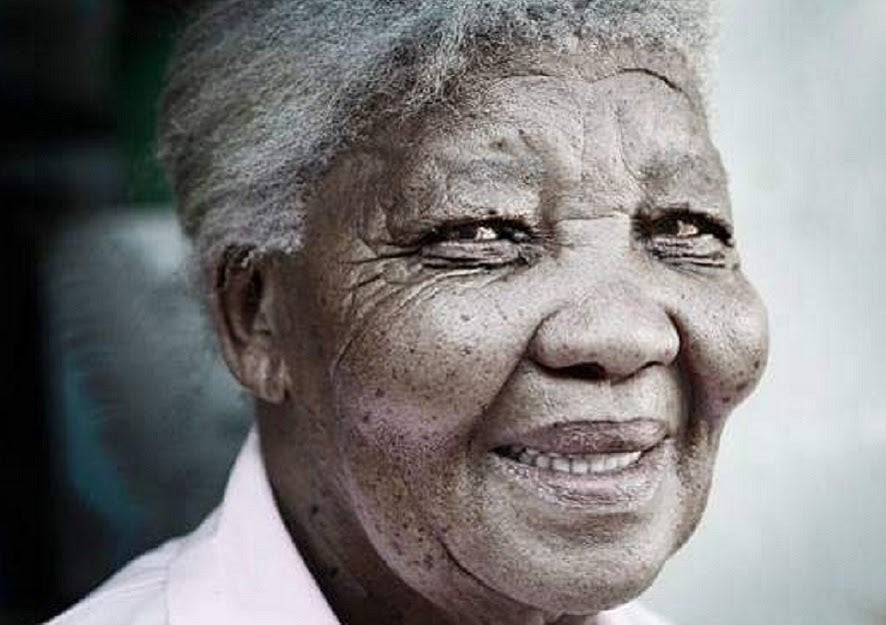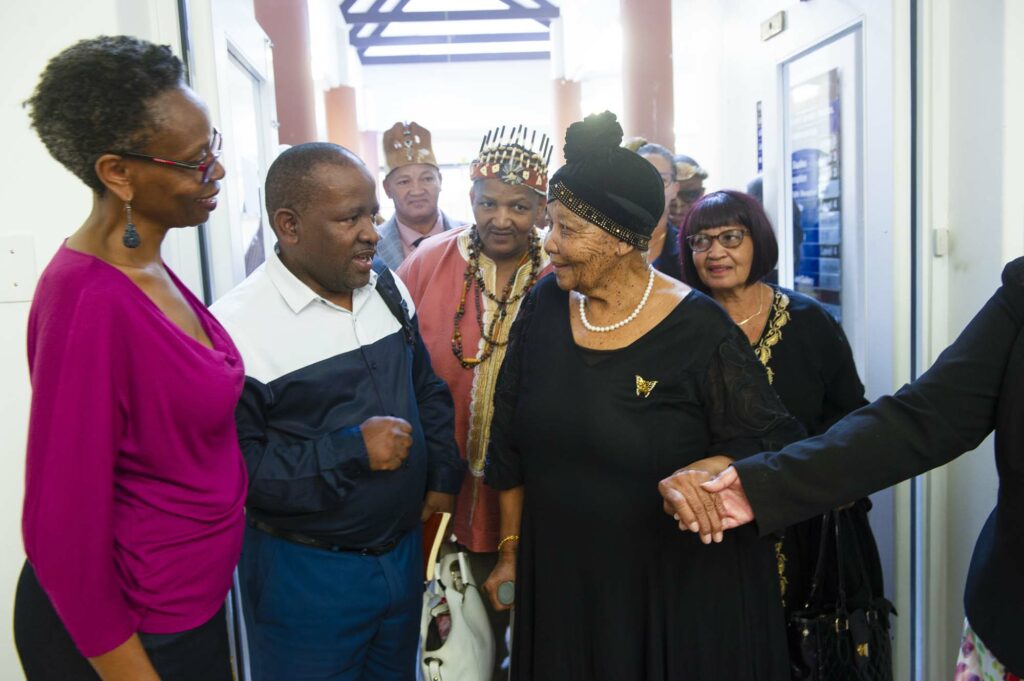Katrina Esau, at the age of ninety-one, holds a unique and invaluable title—the last known speaker of the N|uu language. This ancient language of the indigenous South African people teetered on the edge of extinction for decades, a casualty of colonial oppression and the harsh apartheid policies in the country.
Growing up, Esau was harshly discouraged from using N|uu, instead being forced to speak Afrikaans, the language of the ruling white minority. But rather than let this essential part of her cultural heritage disappear, Esau dedicated much of her life to reviving and preserving N|uu.
Determined to keep N|uu alive, Esau founded a school in her hometown of Upington to teach the language to a new generation. Through her remarkable efforts, she has played a crucial role in safeguarding the future of N|uu, ensuring it won’t be lost to history.

Protecting an Endangered Language
Though Esau has two living sisters, she has no one to converse with in N|uu, except for family members and children to whom she has taught a few phrases. “I miss speaking to someone,” she shared. “It doesn’t feel good. You talk, you walk, you know… you miss someone who can just sit with you and speak N|uu with you.”
Esau’s granddaughter, Claudia Snyman, a language activist, has joined her mission to revive N|uu. They had worked together to open a school, but it was vandalized during the pandemic, seriously hampering their progress. “The language isn’t where it’s supposed to be yet. If Ouma [grandmother] dies, then everything dies,” said Snyman in 2023. She is committed to protecting her grandmother’s legacy. “I’ll do anything in my power to help her to prevent this language from dying.”
The History of N|uu
N|uu is a click language, originating from the ǂKhomani people of the southern Kalahari, who lived in Southern Africa before European colonizers arrived. The San people, of whom the ǂKhomani are a part, were some of the earliest known hunter-gatherers in that region. During British occupation in the 19th century, they were stripped of their ethnic and cultural identity, including their language. People were mocked, beaten, and even murdered for speaking N|uu, endangering the language almost to the point of extinction.
While N|uu has evolved over time, like any language, it remains a crucial link to a history and culture that nearly vanished.
“During colonialism and apartheid, Ouma Katrina and other (indigenous) groups were not allowed to speak their languages; their languages were frowned upon, and that is how we arrived at the point where we have so few speakers,” explained Lorato Mokwena, a linguist from South Africa’s University of the Western Cape. “It’s important that while Ouma Katrina is around, we do everything we can to preserve and document the language.”
The Click Language
N|uu is known as a click language because of its distinctive click sounds. One of the primary clicks is called a “bilabial plosive,” or more commonly, “a kiss click.” Because N|uu was predominantly spoken and not written, there is scant documentation, making it challenging to trace its history and learn more about it.
The Last N|uu Speaker

Around the 1990s, about 20 people identified themselves as N|uu speakers. But by December 2021, only Esau remained, with the others having passed away. Yet, her mission continued. For the past 20 years, she collaborated with Dr. Kerry Jones, a linguist and director of African Tongue, and other community members to create a digital N|uu dictionary. Despite being illiterate herself, Esau co-authored a N|uu children’s book titled *Qhoi n|a Tijho* (Tortoise and Ostrich) with Snyman.
“Her granddaughter, Claudia, can speak the language—not fluently, but as an additional language. But she’s literate, and Ouma Katrina isn’t, so they make a good team,” said Dr. Jones.
Teaching the Next Generation

As of May 2024, Esau became the central educator of a N|uu learning program at a local school. “Children are learning to greet, sing songs, and identify names for animals and plants,” said Dr. Jones. “They won’t be fluent speakers or fully monolingual in N|uu, but they will be able to greet others, sing songs, and understand basic children’s stories.”
In March 2023, Esau was honored with an honorary doctorate from the University of Cape Town for her unwavering efforts and achievements. “Who would have thought that a woman who never saw the inside of a school, who looked after sheep and cleaned kitchens on her hands and knees, would be here today?” said Ouma Katrina during the ceremony unveiling the N|uu dictionary. “Thank you, UCT, for recognizing an elderly woman who never learned to read.”
She also received the Order of the Baobab in Silver from the Republic of South Africa for “her excellent contribution to the preservation of a language facing the threat of extinction. Her determination has inspired young generations to learn.”
Why Should People Care About an Endangered Language?

Sadly, languages die every year, taking with them bits of history and culture. Although this slow extinction seems inevitable in our modern world, it robs society of a unique richness. Language isn’t merely a means of communication; it reflects how people think, feel, and see the world around them. It’s a core part of identity.
“There are these codes that we use to communicate, and we label these codes ‘languages.’ Your experience with one code versus another shapes your reality. That’s fascinating,” Dr. Jones explained. “Because of globalization, we are losing access to these codes. It’s the same as asking, ‘Why care about animals and plants going extinct?’ It’s part of a bigger network—it’s important.”